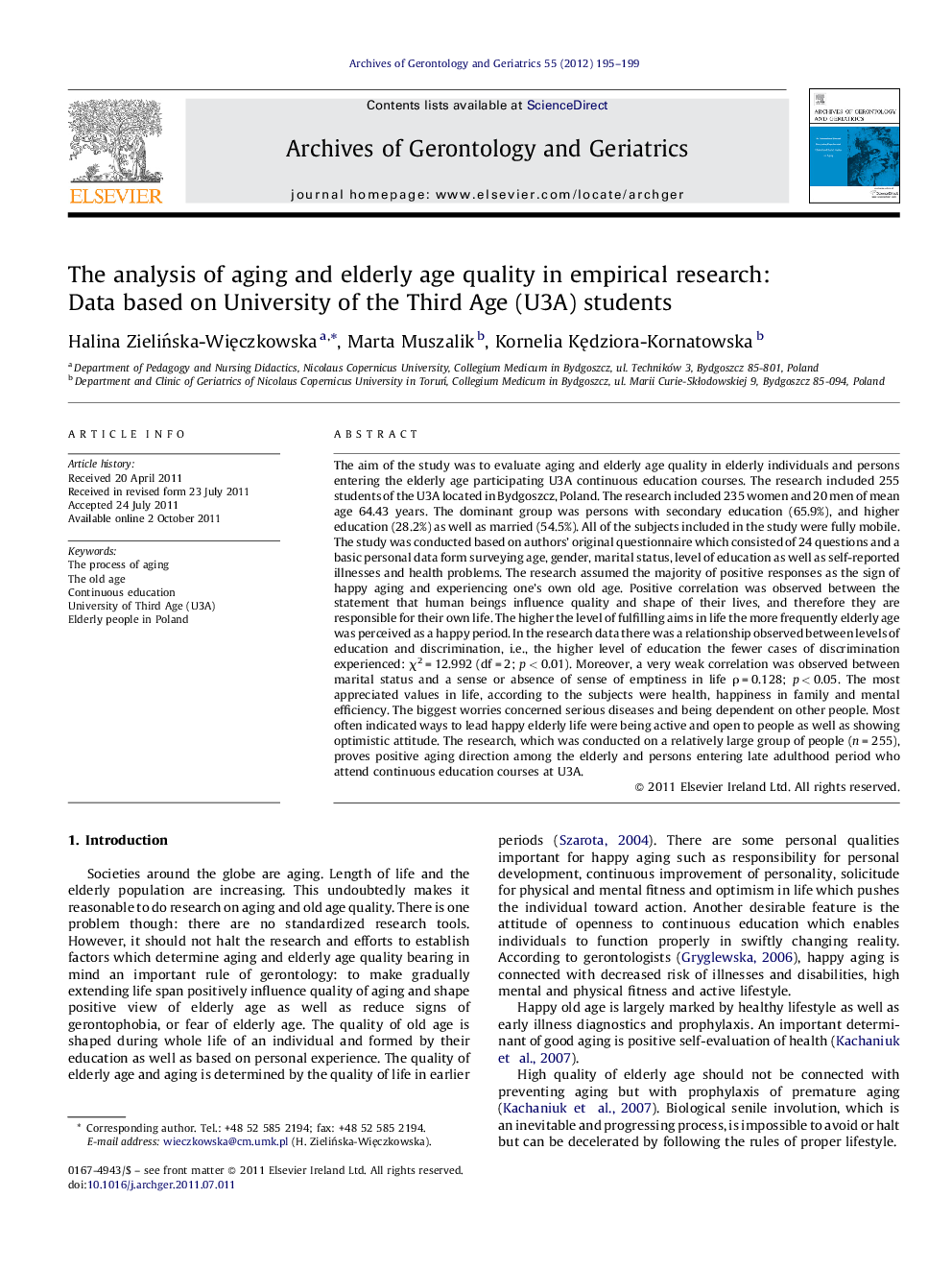| کد مقاله | کد نشریه | سال انتشار | مقاله انگلیسی | نسخه تمام متن |
|---|---|---|---|---|
| 1902885 | 1534448 | 2012 | 5 صفحه PDF | دانلود رایگان |

The aim of the study was to evaluate aging and elderly age quality in elderly individuals and persons entering the elderly age participating U3A continuous education courses. The research included 255 students of the U3A located in Bydgoszcz, Poland. The research included 235 women and 20 men of mean age 64.43 years. The dominant group was persons with secondary education (65.9%), and higher education (28.2%) as well as married (54.5%). All of the subjects included in the study were fully mobile. The study was conducted based on authors’ original questionnaire which consisted of 24 questions and a basic personal data form surveying age, gender, marital status, level of education as well as self-reported illnesses and health problems. The research assumed the majority of positive responses as the sign of happy aging and experiencing one's own old age. Positive correlation was observed between the statement that human beings influence quality and shape of their lives, and therefore they are responsible for their own life. The higher the level of fulfilling aims in life the more frequently elderly age was perceived as a happy period. In the research data there was a relationship observed between levels of education and discrimination, i.e., the higher level of education the fewer cases of discrimination experienced: χ2 = 12.992 (df = 2; p < 0.01). Moreover, a very weak correlation was observed between marital status and a sense or absence of sense of emptiness in life ρ = 0.128; p < 0.05. The most appreciated values in life, according to the subjects were health, happiness in family and mental efficiency. The biggest worries concerned serious diseases and being dependent on other people. Most often indicated ways to lead happy elderly life were being active and open to people as well as showing optimistic attitude. The research, which was conducted on a relatively large group of people (n = 255), proves positive aging direction among the elderly and persons entering late adulthood period who attend continuous education courses at U3A.
Journal: Archives of Gerontology and Geriatrics - Volume 55, Issue 1, July–August 2012, Pages 195–199